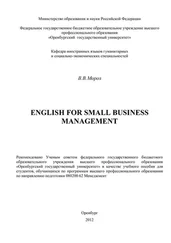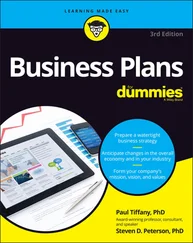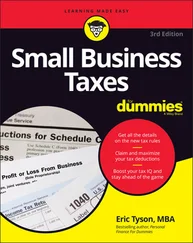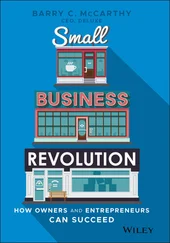Goodwill may be linked more to the owner than you realise: A hairdressing salon is a good example. Sure, the salon may have solid sales and great goodwill, but are customers going to leave in droves because they’re attached to the previous owner’s way of styling their hair?
Unwanted baggage: Some businesses come complete with an inherited set of problems such as a particularly difficult staff member or a poor reputation for customer service. Turning around difficult behaviours or a poor culture of customer service can be very challenging.
Your ‘dream’ can be compromised: If you inherit someone else’s way of running a business, things are going to be a little different from if you start from scratch.
 WHY DO THEY WANT OUT?
WHY DO THEY WANT OUT?
If this business is so good, why is it for sale? Maybe a legit reason exists such as owner illness, the owner retiring or a marriage break-up.
On the other hand, maybe the reason is more sinister such as a major shopping plaza about to open up next door, a highway about to carve through the town or a lease that isn’t likely to be renewed. Maybe the business has never been that successful in the first place.
Ask the owners why they’re selling and what they plan to do next. Don’t be shy to ask around — does anyone else know the owner? Check out whether any similar businesses in the area are for sale (maybe that proposed highway is going to flatten them all).
Sometimes it takes a wee bit of digging to get to the bottom of why someone is really selling, but until you’re truly sure of the reason, I recommend you hold back from making an offer to purchase.
Asking the Right Questions
When it comes to buying a business, the law isn’t forgiving of idiots. The law expects that if you buy a business, you’ve done your research and made an informed decision. You’re not entitled to a refund simply because you didn’t do your homework.
The scope of this book doesn’t allow me to tell you everything you need to know before signing a contract to buy a business — that job belongs to your accountant and solicitor. However, I can provide you with a few pointers about what to expect and what to look out for. Read on — with care …
Finding out who owns the intellectual property
When you buy a business you’re buying not only things such as stock, tools, and fixtures and fittings, but also the intellectual property , such as custom computer software, copyright registrations, distribution agreements, domain names, information databases (including customer lists), licences, patents, secret formulas and trademarks.
 Check the ownership of any intellectual property that you’re buying. For example, when buying a business and its associated domain name (in other words, the name of its website), make sure ownership of the domain name is transferred across to you. With trademarks, make sure a third party doesn’t have an interest in the asset or that a loan isn’t held over the trademark. Or on the flipside, if trademarks don’t exist, ensure that no impediments will emerge for you registering protection for these assets.
Check the ownership of any intellectual property that you’re buying. For example, when buying a business and its associated domain name (in other words, the name of its website), make sure ownership of the domain name is transferred across to you. With trademarks, make sure a third party doesn’t have an interest in the asset or that a loan isn’t held over the trademark. Or on the flipside, if trademarks don’t exist, ensure that no impediments will emerge for you registering protection for these assets.
Analysing sales trends, profit and break-even
Spend some time considering how robust the business model is. For example, what’s the break-even point for sales? If sales drop by 10 per cent (which is quite possible during ownership change), is the business still sustainable?
The second thing to consider is how the gross profit of this business compares with industry trends. If the gross profit margin is higher than average for the industry, this business may be more vulnerable to competition.
Clarifying what the purchase price includes
When you’re looking at buying a business, the term goodwill is one you’ll hear frequently. Specifically, goodwill represents the difference between the purchase price and the combined value of all of the physical assets of the business. The elements that make up goodwill consist of aspects such as the reputation of the business, its loyal customers, its brand identity, its systems, and possibly its staff or any proprietary technology.
The purchase price of a business includes not just goodwill, but also assets such as equipment, furniture, inventory and, in some cases, debtors. In other words, the purchase price of a cafe includes not just the goodwill but the tables, chairs and crockery also, or the purchase of an accounting practice includes not just goodwill but also computers, software, desks and debtors.
When looking at a business that’s for sale, ask the seller to break down the purchase price into the individual components and, as soon as this breakdown is in place, home in on the details:
Are you paying for any assets you don’t need? If an item is unnecessary or obsolete, don’t cough up a cent for it. (Ask for a copy of the depreciation schedule: The written-down value shown on this schedule usually provides a chillingly realistic second opinion on item values.)
Does the purchase price include debtors? If so, clarify what will occur if a customer is slow to pay, or does not pay at all.
Find out if any of the assets are currently under lease, and consider whether or not you will want to take over these leases.
With this process complete, turn your attention to stock (if that’s relevant for this business). Don’t agree to pay for stock at valuation (otherwise known as SAV ), without first nutting out how this valuation is going to be made:
In the contract, place a ceiling value on stock so that you don’t end up paying for a whole load of unwanted deliveries.
State in the contract that the stock has to be good, usable, current stock. If a stock item is unlikely to sell within six months, based on current sales trends, refuse to pay for it. The last thing you want is a warehouse full of obsolete stock.
If a disagreement about the value of stock is a possibility, employ a registered valuer.
Agree on a valuation method for stock. This could be the last price paid or the average price paid, and may or may not include the cost of freight.
Ask for supplier invoices to verify the wholesale cost of stock and the date the stock was supplied. (Any stock bought more than a year ago is likely to be obsolete or overpriced.)
 GST ON THE PURCHASE PRICE
GST ON THE PURCHASE PRICE
The sale price of a business doesn’t attract GST if the following conditions are met:
Both you and the seller are registered for GST
The business is actually for sale and money is changing hands
The seller carries on the business, right up until the day of sale
Everything that you need for the continued operation of the business is supplied
Both parties agree in writing that the business is a going concern
As the buyer, if you’re registered for GST, whether GST is charged or not doesn’t matter because you can claim the GST back. However, if you’re not registered, the seller usually adds the value of GST to the purchase price, and you can’t claim this GST back. (Most purchase agreements specify that the price is ‘plus GST if any’.)
The conclusion? Unless your accountant advises otherwise, register for GST before the sale of the business takes place.
Читать дальше
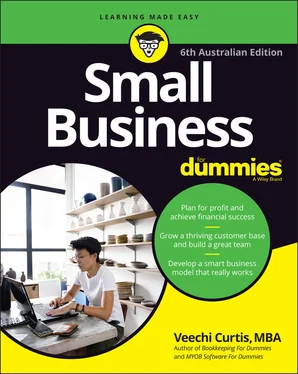
 WHY DO THEY WANT OUT?
WHY DO THEY WANT OUT? GST ON THE PURCHASE PRICE
GST ON THE PURCHASE PRICE